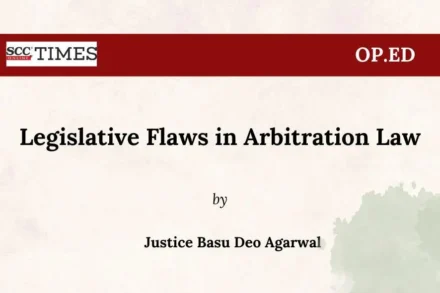
Legislative Flaws in Arbitration Law
by Justice Basu Deo Agarwal*

by Justice Basu Deo Agarwal*
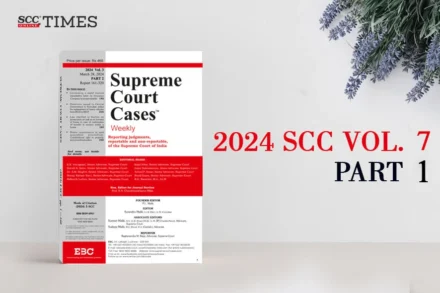
Arbitration and Conciliation Act, 1996 — S. 32(2)(c) and S. 25(c) — Power of Arbitral Tribunal under S. 32(c)
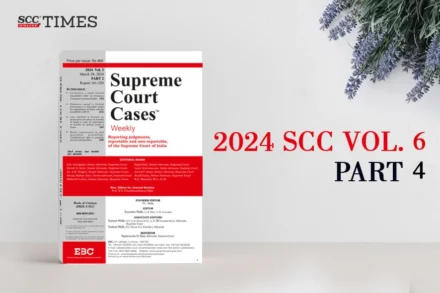
Arbitration and Conciliation Act, 1996 — Ss. 34 and 37 — Interference with award by Court: Law regarding limited jurisdiction of Court
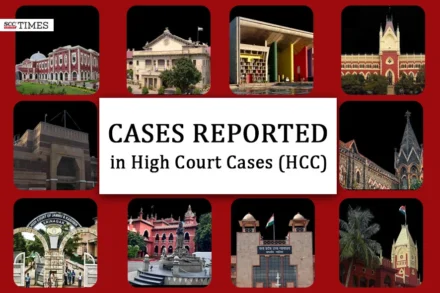
(2023) 1 HCC (All) GST — Search and Seizure — Determination of Tax — Challenge against the order wherein tax of Rs
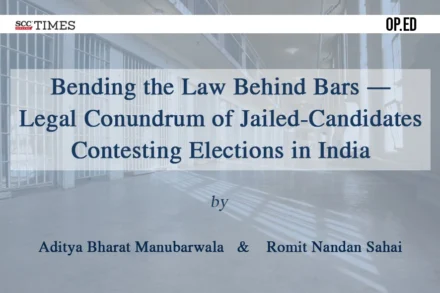
by Aditya Bharat Manubarwala* and Romit Nandan Sahai**
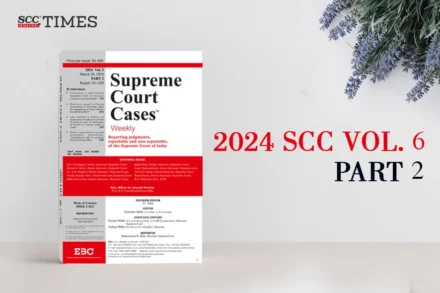
Arbitration — Arbitration and Conciliation Act, 1996 — Ss. 34 and 37 — Arbitral award — Validity of: Law explained on validity
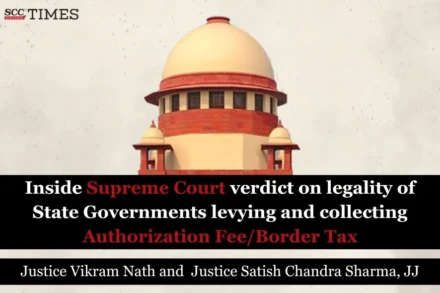
Supreme Court said the petitioners must consider challenging the State provision in the Act and that they should have first approached their jurisdictional High Courts to challenge their respective State enactments.

The Court reiterated the findings of the Supreme Court in State of Maharashtra v. Milind, (2001) 1 SCC 4, that the benefits drawn by a candidate not belonging to a scheduled tribe, must be considered to having been drawn on the basis of a false caste certificate; such benefits are required to be withdrawn.
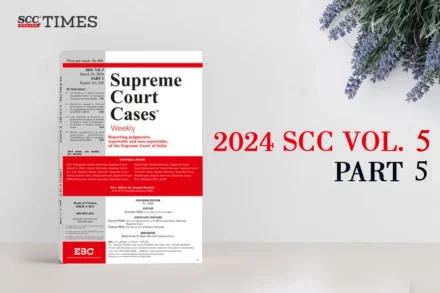
Admiralty (Jurisdiction and Settlement of Maritime Claims) Act, 2017 — S. 4(1)(f) — Suit for misdelivery of cargo and maritime claim by
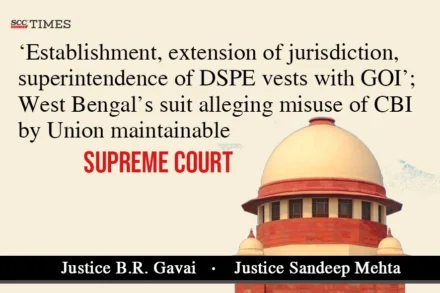
The State of West Bengal had challenged the CBI’s action of registering Suo moto cases for offences that occurred within its territory without any direction from the competent court or prior consent by the State.
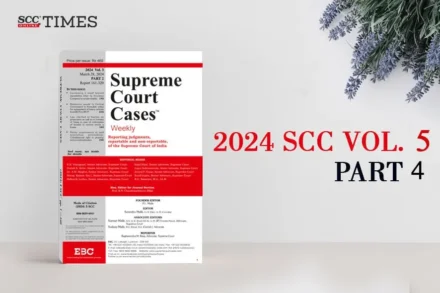
Constitution of India — Arts. 32, 21, 14 and 226 — Writ petition by the victim challenging grant of remission or premature
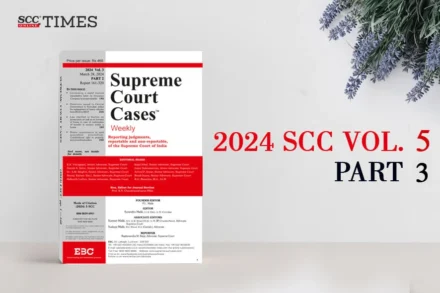
Arbitration and Conciliation Act, 1996 — S. 11(6) and S. 43 — Time-barred claims — Non-reference of, to arbitration — Art. 137
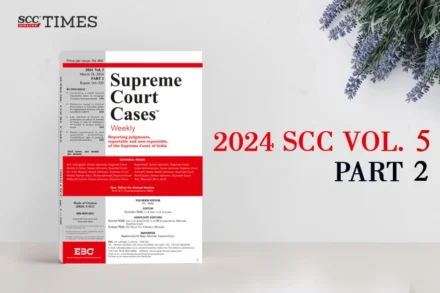
Arbitration and Conciliation Act, 1996 — S. 11(6) — Issue of limitation — Adjudication of, as an admissibility issue at the stage
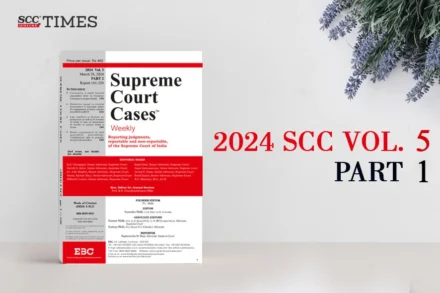
Constitution of India — Pt. III, Preamble, Arts. 19(1)(a), (b) & (c) and Arts. 21 & 25 — Representative democracy — Transparency
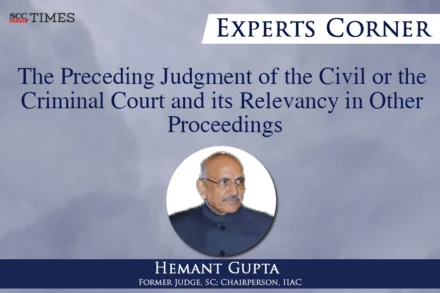
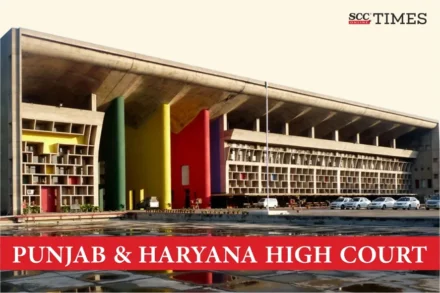
The Court directed that the SSP should be free either to conduct departmental inquiry after following due procedure prescribed by Punjab Police Rules, 1934 or take appropriate decision after conclusion of criminal proceedings.
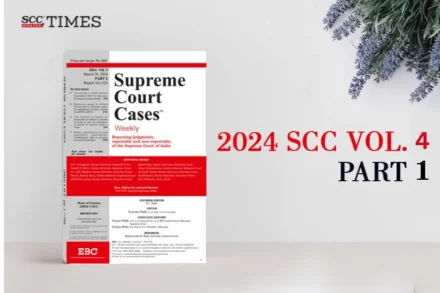
Arbitration and Conciliation Act, 1996 — Ss. 8, 11 and 45 r/w Ss. 2(1)(h) and 7 — Group of Companies doctrine: Scope
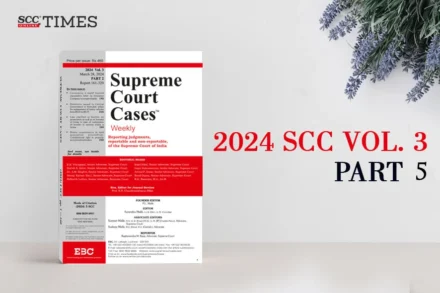
Civil Procedure Code, 1908 — Or. 6 R. 17 — Amendment of plaint: Principles summarized re when amendment of plaint is permissible.
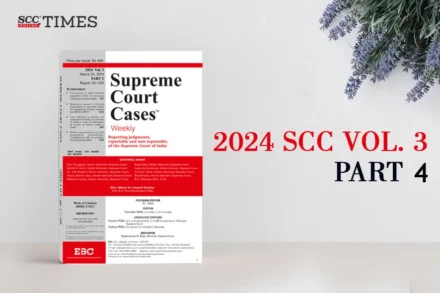
Arbitration and Conciliation Act, 1996 — Ss. 34 and 5: Principles summarised re scope of interference by Court under S. 34. Supervisory,
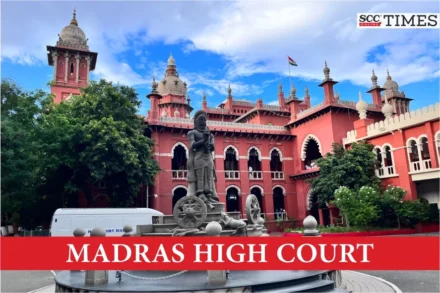
Madras High Court said that irrespective of whether petitioner trust have or do not have any vested right to claim the extension, the classification done by CBDT through the Circular have no reasoning for leaving out the regular registration of newly provisionally registered trust under Section 80G of the Act in respect of new trusts.